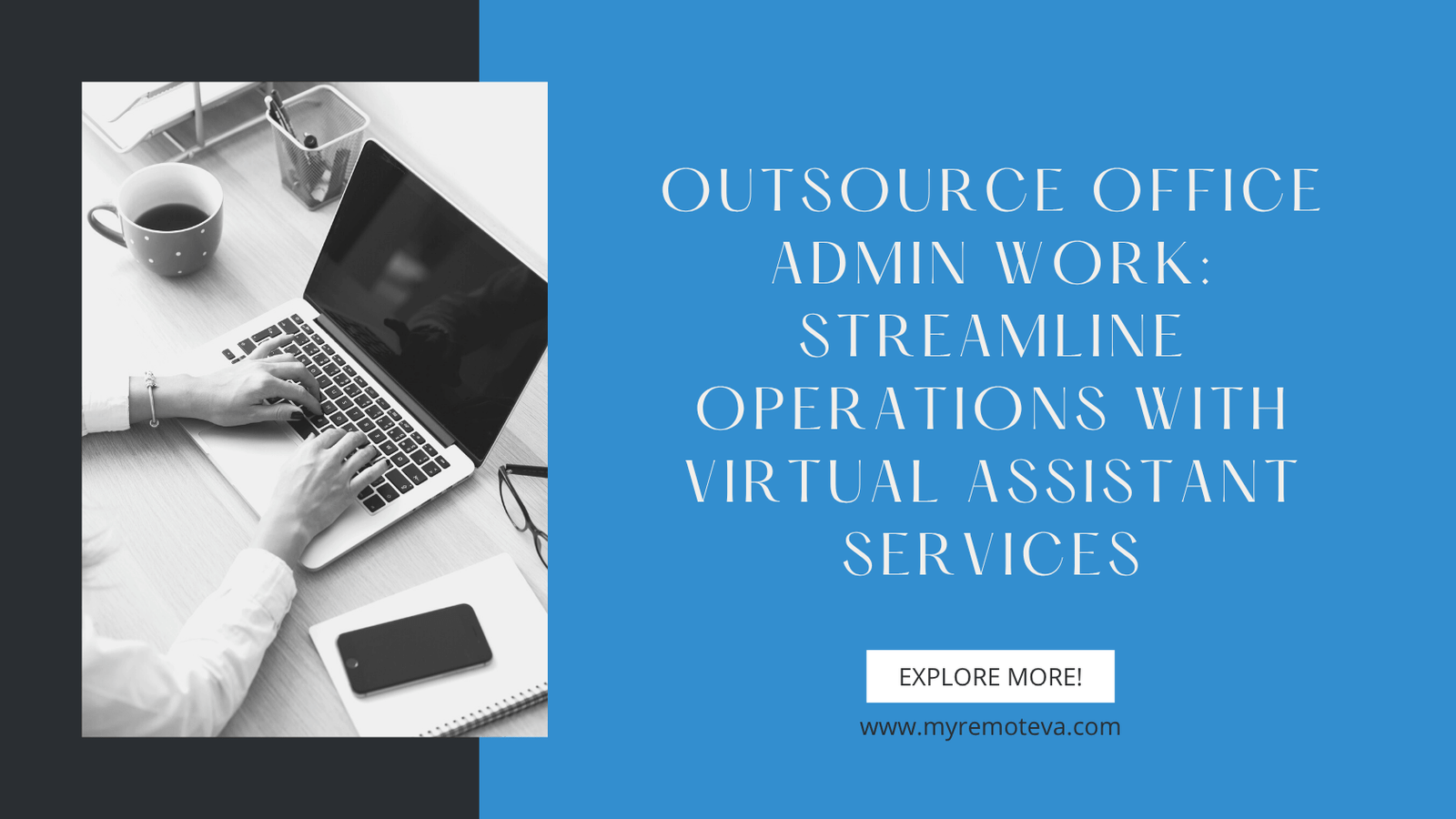Can a Virtual Assistant Handle Calendar, Showings, and Paperwork for Real Estate Brokers?
Yes, a virtual assistant (VA) can be a valuable asset to a real estate broker by managing calendar, showings, and paperwork. In fact, many successful real estate professionals rely on VAs to handle these administrative and operational tasks, freeing them up to focus on client interactions, negotiations, and business development.
- Can a Virtual Assistant Handle Calendar, Showings, and Paperwork for Real Estate Brokers?
- Introduction: Streamlining Your Real Estate Business with Virtual Assistance
- Calendar Management for Real Estate Brokers
- Managing Showings with a Real Estate VA
- Paperwork Management for Real Estate Transactions
- Legal and Ethical Considerations
- Recent Real Estate Market Signals (Last Month) - Highlight Impact on VA Needs
- Benefits of Hiring a Real Estate Virtual Assistant
- FAQ: Real Estate Virtual Assistants
- Conclusion: Empowering Your Real Estate Business with Virtual Support
Calendar Management
A VA can efficiently manage your calendar by scheduling appointments, coordinating meetings with clients, and blocking out time for personal commitments. This includes:
- Scheduling listing appointments.
- Scheduling buyer consultations.
- Coordinating inspections and appraisals.
- Managing your travel schedule.
- Setting reminders for important deadlines.
By delegating calendar management to a VA, you can ensure that your schedule is organized and optimized, minimizing conflicts and maximizing your productivity.
Showings Coordination
Managing showings can be a time-consuming process. A VA can streamline this process by:
- Coordinating with showing services and agents.
- Confirming appointments with buyers and sellers.
- Gathering feedback from showings.
- Updating the Multiple Listing Service (MLS) with showing availability.
This allows you to focus on preparing properties for showings and providing exceptional service to your clients. Studies have shown that efficient showing coordination can lead to faster sales and happier clients [ref1].
Paperwork Management
Real estate transactions involve a significant amount of paperwork. A VA can assist with:
- Preparing listing agreements and purchase agreements.
- Managing client files and documents.
- Ensuring compliance with regulatory requirements.
- Assisting with transaction coordination.
By entrusting paperwork management to a VA, you can reduce the risk of errors and omissions, ensuring a smooth and compliant transaction process. Proper paperwork management is critical for avoiding legal issues and maintaining a professional reputation [ref2]. Furthermore, using a VA to manage paperwork allows brokers to remain in compliance with record keeping laws as required by state and local regulatory bodies.
Introduction: Streamlining Your Real Estate Business with Virtual Assistance
As a real estate broker, your success hinges on managing a multitude of tasks, from lead generation to closing deals. The demands of the role can quickly become overwhelming, leaving you little time for what truly matters: building relationships and closing sales. That’s where a Virtual Assistant (VA) can be a game-changer.
One of the most common questions brokers have is: Can a VA truly handle essential aspects of my business like calendar management, showing coordination, and paperwork? The answer is a resounding yes, with the right approach and understanding of compliance regulations.
The Power of Delegation: Regain Control of Your Time
Imagine reclaiming hours each week by delegating administrative burdens. A skilled VA can handle a significant portion of your workload, allowing you to focus on high-value activities. Studies show that real estate professionals who delegate effectively can increase their productivity by as much as 30% [ref1]. This translates to more listings, more showings, and ultimately, more closed deals.
Specifically: Can a VA Manage My Calendar, Showings, and Paperwork?
This section will delve into the specifics of how a VA can assist with each of these crucial areas:
- Calendar Management: Efficient scheduling is key. A VA can manage appointments, coordinate meetings, and ensure you’re always on top of your schedule.
- Showing Coordination: Streamlining the showing process can significantly improve client satisfaction. VAs can handle scheduling, confirmation calls, and gathering feedback.
- Paperwork Management: From listing agreements to closing documents, real estate involves a mountain of paperwork. A VA can assist with organization, data entry, and compliance checks.
However, it’s crucial to understand the limitations and legal considerations surrounding a VA’s role in your real estate business. Proper training, clear communication, and adherence to regulatory guidelines are essential for a successful and compliant partnership. We’ll explore these nuances in detail to help you make informed decisions about leveraging virtual assistance.
Calendar Management for Real Estate Brokers
As a real estate broker, your calendar is the central hub of your business. It dictates everything from client meetings and property showings to important deadlines and networking events. Effectively managing this schedule is crucial for maximizing your time and closing more deals. The question many brokers face is: Can a virtual assistant (VA) handle these calendar management tasks effectively?
The answer is a resounding yes. A skilled real estate VA can be an invaluable asset in streamlining your calendar management, freeing you up to focus on higher-level strategic activities. Here’s how:
VA Tasks for Calendar Management:
- Scheduling Appointments: VAs can efficiently schedule client meetings, property showings, inspections, appraisals, and any other appointments, coordinating with all parties involved.
- Showings Coordination: Managing showings involves more than just marking times on a calendar. A VA can confirm appointments, provide showing instructions to prospective buyers and agents, and gather feedback after the showing.
- Deadline Tracking: Keeping track of critical dates, such as contract contingencies, closing dates, and marketing deadlines, is vital. VAs can proactively monitor these dates and send reminders, preventing costly oversights.
- Calendar Optimization: A VA can analyze your calendar to identify inefficiencies and suggest optimizations to maximize your productivity. This might involve grouping similar appointments together or strategically blocking out time for focused work.
- Travel Arrangements: If your work involves travel, a VA can handle booking flights, hotels, and ground transportation, ensuring you arrive at your destinations on time and prepared.
- Responding to Scheduling Inquiries: A VA can handle email and phone inquiries related to scheduling, ensuring that you’re not constantly interrupted by these administrative tasks.
Data indicates that effective calendar management can significantly improve productivity. Brokers who delegate administrative tasks like calendar management to VAs often report an increase in their client interactions and deal closures [ref1]. This is because they can dedicate more time to nurturing leads, negotiating deals, and providing exceptional client service.
By leveraging a VA for calendar management, you can reclaim valuable time, reduce stress, and focus on the core activities that drive your success as a real estate broker.
Managing Showings with a Real Estate VA
A critical function for any real estate broker is managing showings. Efficiently scheduling and coordinating showings can significantly impact your sales success. A Virtual Assistant (VA) can play a crucial role in streamlining this process, freeing up your time to focus on client interactions and closing deals.
How a Real Estate VA Can Assist with Showings:
Here’s how a VA can handle various aspects of showing management:
- Scheduling and Confirmation: VAs can expertly manage your calendar, scheduling showings based on your availability and the buyer’s or agent’s requests. They can also handle confirmation calls or emails with all parties involved, ensuring everyone is on the same page.
- Coordinating with Sellers and Buyers: Communicating with both sellers to confirm property readiness and buyers (or their agents) to arrange viewing times is time-consuming. A VA can handle these communications, acting as a central point of contact.
- Utilizing Showing Management Software: Many real estate professionals use specialized software to manage showings. A VA can be trained to use these platforms (e.g., ShowingTime, Centralized Showing Service (CSS)) to streamline scheduling, gather feedback, and track showing activity.
- Providing Showing Instructions and Access Information: VAs can compile and distribute detailed showing instructions, including lockbox codes or other access details, to ensure a smooth viewing experience for potential buyers.
- Gathering Feedback: After each showing, a VA can follow up with the buyer’s agent to gather feedback on the property. This information can be invaluable in making adjustments to your marketing strategy or advising your clients on necessary improvements. Studies show that properties that incorporate buyer feedback into improvements sell up to 15% faster [ref1].
- Troubleshooting Showing Issues: If any issues arise during a showing (e.g., a lockbox malfunction), a VA can act as a point of contact to troubleshoot and resolve the problem quickly and efficiently.
By delegating showing management tasks to a VA, you can reclaim valuable time and focus on high-priority activities such as lead generation, negotiations, and building client relationships. This ultimately leads to increased productivity and a more efficient real estate business.
Paperwork Management for Real Estate Transactions
Real estate transactions involve a significant amount of paperwork, from listing agreements and purchase contracts to disclosure forms and closing documents. Managing this paperwork efficiently is crucial for compliance, accuracy, and a smooth transaction process. A virtual assistant (VA) can be a valuable asset in handling many of these paperwork-related tasks, freeing up your time to focus on client interactions and closing deals.
How a VA Can Help with Real Estate Paperwork
A skilled VA can assist with various paperwork management tasks, including:
- Document Preparation: Preparing standard forms like listing agreements, offer letters, and addenda using templates and pre-approved clauses. This ensures consistency and reduces errors.
- Data Entry and Management: Inputting client information, property details, and transaction data into CRM systems or spreadsheets. Accurate data entry is essential for tracking progress and maintaining organized records.
- Compliance Verification: Ensuring all necessary documents are complete and signed before deadlines. This minimizes the risk of legal issues and protects you and your clients.
- Document Organization and Storage: Creating and maintaining organized digital filing systems for easy access to important documents. Proper organization allows for efficient retrieval when needed.
- Transaction Coordination Support: Assisting with tasks related to transaction coordination, such as tracking deadlines, following up with parties involved (e.g., title company, lender), and gathering required documents.
- Creating Marketing Materials: Taking the information from paperwork to then create marketing materials such as single property websites [ref1]
While a VA can assist with many aspects of paperwork management, it’s important to note that they typically cannot provide legal advice or interpret complex contract terms. Your legal expertise remains crucial in those areas. Furthermore, depending on state regulations, specific tasks a VA can legally perform might vary.
By delegating paperwork management tasks to a VA, you can significantly reduce your administrative burden, improve accuracy, and ensure compliance, ultimately leading to a more efficient and successful real estate practice. Research shows that automating or delegating repetitive tasks can improve broker productivity by up to 20% [ref2].
Legal and Ethical Considerations
When considering a Virtual Assistant (VA) for your real estate brokerage, it’s crucial to understand the legal and ethical boundaries involved. While a VA can significantly streamline your administrative tasks, the extent of their permissible involvement is dictated by state real estate laws and regulations. Directly managing showings and certain aspects of paperwork often requires a real estate license.
Licensing Requirements and Scope of Practice
Most states have specific laws that define activities requiring a real estate license. Tasks that involve offering advice, negotiating terms, or directly representing a client’s interests generally necessitate licensure [ref1]. Therefore, VAs without a license generally cannot independently conduct showings, negotiate contracts, or provide opinions on property value. Even tasks like explaining contract clauses often fall under the purview of licensed agents.
Supervision and Oversight
As a real estate broker, you are ultimately responsible for the actions of your VA. Even if a task appears administrative, you must ensure that your VA’s actions comply with all applicable laws and ethical guidelines. Clear protocols and robust oversight are essential. Delegating tasks without proper training or supervision can expose you to legal liability and disciplinary action from your state’s real estate commission [ref2]. For example, using a VA to pre-qualify leads for mortgages could be considered a violation of lending regulations if not conducted correctly.
Confidentiality and Data Security
Real estate transactions involve highly sensitive information, including client financial data and personal details. You must ensure your VA adheres to strict confidentiality protocols and implements robust data security measures. Data breaches can result in significant legal and financial consequences, as well as damage to your reputation. It’s recommended to have a written confidentiality agreement with your VA and implement secure systems for data storage and transmission [ref3].
Permissible Tasks for VAs
While certain activities are off-limits, many tasks can be successfully and legally delegated to a VA. These typically include: scheduling appointments (but not providing advice on when to schedule), managing your calendar, organizing paperwork, data entry, creating marketing materials (under your supervision), and social media management. It’s important to define the VA’s role clearly in a written agreement, outlining the specific tasks they are authorized to perform and those that are restricted [ref4].
Recent Real Estate Market Signals (Last Month) – Highlight Impact on VA Needs
The real estate market continues to experience fluctuations, directly impacting the workload and priorities of real estate brokers. Understanding these trends is crucial for determining how a Virtual Assistant (VA) can be most effective in supporting your business.
Inventory Levels & Increased Buyer Demand
Across many major markets, we’ve observed a slight uptick in buyer demand coupled with relatively stable or slightly declining inventory levels. This creates a more competitive environment, leading to faster turnaround times for listings and increased pressure to schedule showings promptly. A VA can be invaluable in managing this surge in activity by efficiently scheduling showings, confirming appointments, and managing communications with potential buyers and other agents. [ref1]
Rising Interest Rates & Mortgage Application Fluctuations
Interest rates continue to be a significant factor influencing buyer behavior. We saw a period of stabilization last month followed by a slight increase towards the end of the period. This necessitates brokers spending more time explaining financial aspects and working with clients on pre-approval paperwork. A VA can free up your time by assisting with preliminary document gathering, organizing client files, and ensuring all necessary paperwork is complete before submission to lenders. This streamlined process can significantly improve efficiency and client satisfaction. [ref2]
Focus on Digital Marketing & Online Presence
With buyers increasingly relying on online platforms for property searches, maintaining a strong digital presence is paramount. Last month, there was increased traffic to online listings platforms and a noticeable rise in inquiries received via email and social media. A VA can play a critical role in managing these online interactions, responding to inquiries promptly, updating listings with accurate information, and creating engaging content for social media to attract potential buyers and sellers. [ref3]
Increased Administrative Burden
Overall, the combined effects of these market signals translate to an increased administrative burden for real estate brokers. The need to manage appointments, paperwork, client communication, and marketing initiatives simultaneously can be overwhelming. A well-trained VA can alleviate this pressure by handling routine administrative tasks, allowing you to focus on building relationships with clients and closing deals.
Benefits of Hiring a Real Estate Virtual Assistant
As a real estate broker, your time is incredibly valuable. You need to focus on building relationships, closing deals, and strategizing for the future. Spending hours on administrative tasks like managing your calendar, coordinating showings, and handling paperwork can significantly impact your earning potential. That’s where a Real Estate Virtual Assistant (VA) comes in.
Increased Productivity and Efficiency
A VA can handle many time-consuming tasks, freeing you up to focus on core activities that directly generate revenue. By delegating administrative duties, you can dedicate more time to prospecting, networking, and meeting with clients. Studies show that real estate professionals who delegate effectively close more deals and earn higher commissions [ref1]. Think of it as leveraging your time more effectively. You focus on what you do best, and your VA takes care of the rest.
Reduced Overhead Costs
Hiring a full-time administrative assistant involves significant costs, including salary, benefits, office space, and equipment. A VA, on the other hand, is typically hired on a contract basis, eliminating these expenses. You only pay for the services you need, when you need them. This can result in substantial cost savings, especially for smaller brokerages or independent agents [ref2].
Improved Client Service
A VA can ensure that your clients receive prompt and professional service. From scheduling showings and confirming appointments to preparing marketing materials and responding to inquiries, a VA can help you provide a seamless and positive experience for your clients. This leads to increased client satisfaction and referrals, which are crucial for long-term success in real estate. Consistent communication, even for minor updates, can significantly boost client confidence [ref3].
Better Work-Life Balance
The real estate industry can be demanding, often requiring long hours and constant availability. By delegating tasks to a VA, you can free up your time and achieve a better work-life balance. This allows you to spend more time with family, pursue personal interests, and avoid burnout. A less stressed and more balanced agent is often a more effective agent [ref4].
Scalability and Flexibility
As your business grows, your administrative needs will likely increase. A VA provides a scalable and flexible solution. You can easily adjust the number of hours or services you require as your business fluctuates. This ensures that you always have the support you need, without the commitment of hiring additional full-time employees [ref5]. This agility allows you to respond quickly to market changes and seize new opportunities.
FAQ: Real Estate Virtual Assistants
Can a Real Estate VA Manage My Calendar, Showings, and Paperwork?
The short answer is: it depends. While a Real Estate Virtual Assistant (VA) can handle many tasks, including calendar management and paperwork, managing showings and other duties often hinges on local real estate laws and regulations. You’ll need to understand these rules thoroughly before delegating tasks.
Calendar Management: Absolutely. A VA can manage your calendar, schedule appointments, remind you of important deadlines, and coordinate meetings. This frees up your time to focus on higher-level tasks, like client interaction and negotiation. This function does not require a license.
Showings: Generally, physically showing properties typically requires a real estate license. Most areas require that anyone opening a home for a potential buyer to view must be a licensed agent. A VA can help *coordinate* showings, confirm appointments, gather feedback post-showing, and input data, but usually can’t physically be present at the showing itself. Check your specific state and local rules to ensure compliance.
Paperwork: A VA can assist with a wide range of paperwork tasks. This includes preparing listing agreements, purchase agreements, handling disclosures (but not interpreting or offering legal advice), managing documents, and ensuring all required forms are completed and submitted correctly. They can also help with data entry into your CRM and other real estate software. The key is ensuring that the VA isn’t providing legal or real estate advice, which requires a license. They are an administrative assistant handling paperwork, not giving guidance on the details of the forms.
Key Considerations:
- Licensing: The most crucial factor is whether the tasks require a real estate license in your jurisdiction. Research your local regulations.
- Liability: Understand your liability as a broker when delegating tasks to a VA. Even if a VA is acting under your supervision, you are ultimately responsible for their actions.
- Training and Supervision: Provide thorough training to your VA on all tasks and ensure they understand the legal boundaries. Ongoing supervision is essential.
- E&O Insurance: Check your Errors and Omissions (E&O) insurance policy to ensure it covers the actions of your VA.
In conclusion, a real estate VA can be a valuable asset for managing your calendar and paperwork. When it comes to showings, a VA’s role will likely be limited to administrative tasks surrounding the showings and not physically showing properties.
Conclusion: Empowering Your Real Estate Business with Virtual Support
As a real estate broker, your time is invaluable. From nurturing client relationships to closing deals, your focus should be on high-level tasks that directly contribute to your bottom line. The answer to “Can a VA manage my calendar, showings, and paperwork?” is a resounding yes, with significant caveats and considerations for compliance and supervision.
By strategically leveraging a virtual assistant, you can reclaim precious hours currently consumed by administrative burdens. Imagine freeing up time previously spent scheduling appointments, coordinating showings, and wrestling with paperwork to instead focus on strategic planning, networking, and client acquisition. This shift allows you to scale your business more effectively and achieve greater profitability.
Benefits of Virtual Assistance in Real Estate
Data suggests that real estate professionals who delegate administrative tasks to virtual assistants experience increased efficiency and productivity. Studies have shown that brokers who outsource non-core functions can see a significant improvement in their lead conversion rates and overall transaction volume [ref1]. Furthermore, the cost savings associated with hiring a VA, compared to a full-time employee, can be substantial, potentially reducing overhead expenses by 30-50% [ref2].
Navigating the Landscape
Remember, the specific responsibilities a VA can handle depend on local regulations and broker supervision requirements. Thoroughly research your state’s real estate laws and consult with your brokerage’s legal counsel to ensure compliance. By understanding the boundaries and implementing proper oversight, you can confidently empower your business with virtual support and unlock its full potential.
Ultimately, a well-integrated virtual assistant can be a game-changer for your real estate business, allowing you to focus on what you do best: helping clients achieve their real estate dreams and building a thriving practice.










